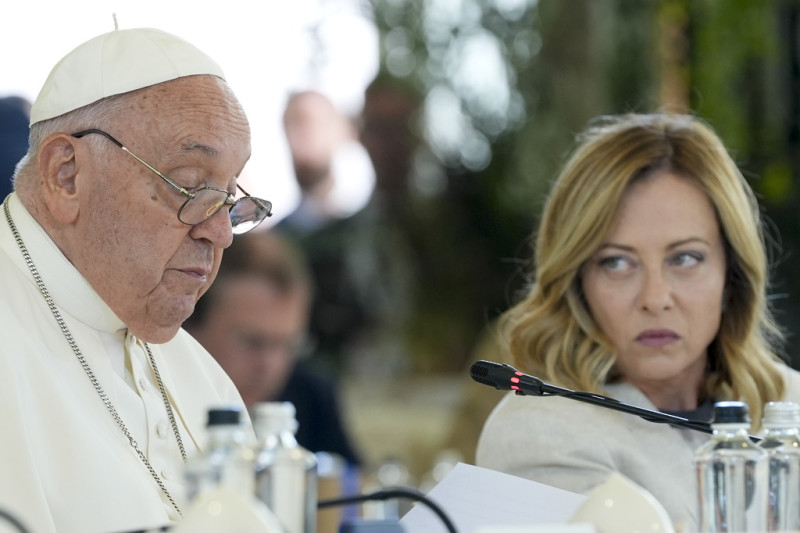The Pontiff used homophobic slang and warned bishops not to allow gay men to become priests.
When the information spread that the Pope Francis used an offensive term for homosexuals while speaking to Italian bishops at a conference last month, many Catholics were shocked and concerned.
Pope Francis reportedly used the abusive and derogatory term “frociaggine” , which translates as “sister”, in order to express his opposition to the inclusion of homosexuals in priestly schools. The Vatican, in its statement, said the pontiff had no intention of using “homophobic language” and apologized to anyone offended by it.
The apparent inconsistency in the Pontiff’s messages reflect the deep perceptions and tensions that govern the Roman Catholic Church’s and Francis’ relationship with homosexuality.
The church considers “homosexual dispositions” to be “inherently deranged.” Regarding ordination, church guidelines state that people with “deep-rooted homosexual tendencies should not become priests.”
However, ordination has long been a refuge of sorts for gay Catholic men according to researchers and priests, who say that at least thousands of clergy are gay although only a few publicize their sexual orientation, as the “New York Times” writes.
While in the past these contradictions were silenced by an aura of… taboo, Francis’ recent – spontaneous – comments have brought them to light. “The Pope lifted the veil” said Francesco Lepore, who left the church when he came out as gay and became an activist.
And indeed, this particular issue hides longstanding prejudices, and the sexual abuse crisis that unfolded two decades ago sparked accusations from some bishops and conservative church media that homosexuality was to blame! Even though studies have repeatedly found that there is no link between being gay and child abuse.
Despite the fact that society has moved on (our times have outgrown many things…) and Francis has adopted a more progressive approach, church teachings still describe homosexuality as “deviance” and have enshrined this view . in restrictions that critics say perpetuate a widespread homophobic perception and fuel tensions.
Academics and prelates, who support the rights of the LGBTQ community, said that for gay Catholic men becoming priests was – for a long time – seen as a way to “drown” and overcome the stigma once attached to their sexual orientation, and perhaps even suppress him through Celibacy.
It is difficult to know how many priests are gay, as there are no reliable statistics, but in the United States, gay men likely make up at least 30 to 40% of the American Catholic clergy according to estimates from dozens of researchers and gay priests gathered in a 2019 New York Times survey. Some priests and activists say the number is closer to 75 percent.
It is not the first time that Pope Francis has expressed the church’s opposition to the entry of gay men into the priesthood. While he has acknowledged that many gay priests are good and “holy,” Francis has repeatedly expressed concern that gay candidates for the priesthood can end up having affairs and leading double lives.
In another closed-door meeting in 2018, which was reported by Italian media, he said that men with “deep-rooted homosexual tendencies should not be allowed to enter seminaries.”
Two years earlier, the Pope gave the “green light” to a document on priestly inclinations that said exactly the same thing, repeating a 2005 document approved by Benedict XVI. When Francis last year allowed priests to bless same-sex couples, some bishops fought back. To appease them, the Vatican issued a directive-communicado saying that “local culture” should be taken into account.
When asked about this, some bishops referred to homosexuality as a “pathological” condition, a “problem” or used expressions such as “normal sexuality” to refer to heterosexuality, as opposed to homosexuality. The conclusion is yours to make…
Source :Skai
With a wealth of experience honed over 4+ years in journalism, I bring a seasoned voice to the world of news. Currently, I work as a freelance writer and editor, always seeking new opportunities to tell compelling stories in the field of world news.











